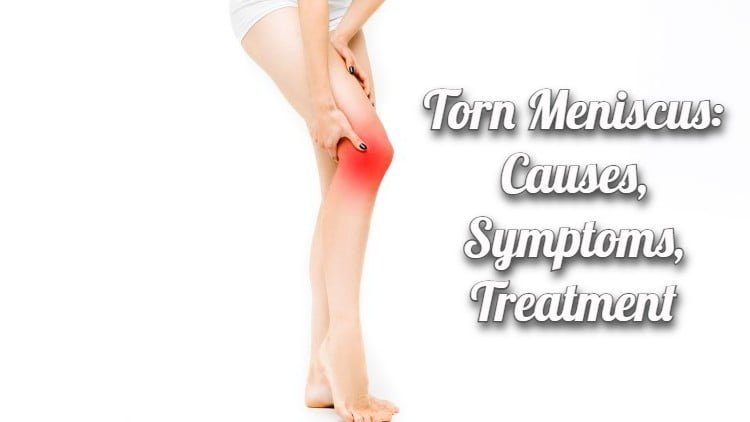The knee is one of the most complex joints in the human body and can be a site of a number of different problems. Among these problems is the torn meniscus. A meniscus can tear in many ways, either by an injury or simply by degeneration caused by aging and repetitive stress.
What are the causes of a torn meniscus?
A meniscus tear is caused by a twisting movement that pulls or stresses the meniscus. The knee joint is formed by a thigh bone (femur) and a shinbone (tibia). These bones are connected to each other by strong ligaments and surrounded by muscles, which help move the joint. A fibrous band of cartilage called the meniscus lies between these two bones and helps absorb shock during movement. Tears can be either traumatic or degenerative. People suffering from degenerative tears are over 40 years of age, have active lifestyles, and have had previous injuries to the knee area. Traumatic tears can occur in younger people with no history of knee pain.
What are the symptoms of a torn meniscus?
The symptoms of a torn meniscus can range from mild to severe and can even affect one knee differently than the other. You may have mild pain or swelling, or your knee may feel unstable. The pain may be constant or infrequent. There may be no symptoms until you try to walk or put weight on your knee.
How to diagnose torn meniscus?
A torn meniscus can be diagnosed with a physical examination and history of symptoms. An X-ray may show a swollen area around the joint that was injured (a hemarthrosis). Further testing such as an MRI or CT scan may be necessary to confirm the diagnosis and determine the extent of the injury.
What is the treatment for a torn meniscus?
Tears can be treated conservatively or with arthroscopic surgery. Conservative treatment includes physical therapy and anti-inflammatory medicines such as ibuprofen. If these measures fail or if you have a significant amount of pain, a consultation with an orthopedic surgeon may be recommended. If your meniscus tear is severe and/or you experience chronic pain, surgery may be recommended to remove or repair any damaged tissues.
Grade III tears are complete tears and require surgery to repair. Surgery is recommended because there is a high risk of developing arthritis in joints above and below the knee, as well as early degeneration of the articular cartilage if left untreated.
Have orthopedic problems?
Consult Dr. Manoj Kumar Khemani, one of the leading orthopedic doctors and surgeons. From the best arthritis treatment in Kolkata to the best rheumatoid arthritis treatment, hip replacement, and more, he has extensive expertise in different areas, assuring you of personalized treatment and an exceptional experience. Get in touch today and address all your orthopedic problems.

